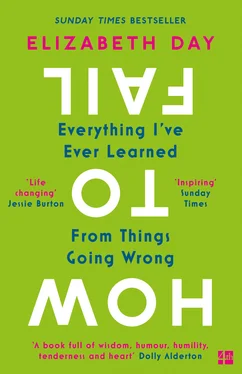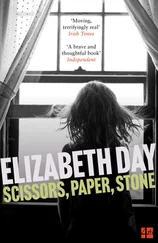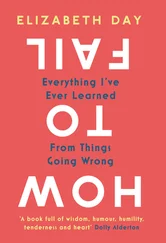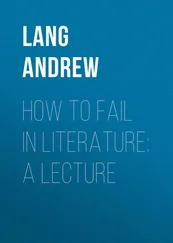‘I completely fucked up my twenties,’ she said. ‘I went to university for a year and then I dropped out and lived on road protests. So I was a dreadlocked, incense-smelling hippy really. I completely dropped out of society. I was very non-material …
‘Then I really didn’t have any money. I was working as a cleaner, I was working, doing the filing for an accountant. And I was in my late twenties, and I couldn’t see any way out of it … It’s very hard to drop back in [to society] again. So yeah, it was a very, very dark period. And a very long, dark period.
‘You know, at the time I thought, “What does a degree matter?” And I just hadn’t really realised the entire infrastructure that going to university builds for you in your life. It’s not just education, which I think I sort of patched together on my own anyway. It’s that you don’t have a circle of friends that are also doing things. You’re not part of that sort of professional world at all. And the older I got, the more it became clear that I really slipped between the cracks somehow. And it is so hard to get back in.’
Phoebe Waller-Bridge struggled to get the parts she wanted at RADA and felt so broken down by her tutors that she lost confidence and spent much of her twenties failing at auditions or being typecast as the posh, hot girl until she began writing her own material.
Sebastian Faulks recalled being ‘optimistic as a child. So although very shy, I was essentially a jolly little chap. I looked on the bright side. And I think I became essentially pessimistic in my twenties really. And you know, I’ve had to fight pretty hard to try and look on the upside. But I think … I’m not sure it’s a terribly intellectual thing. I think it’s more of a temperamental thing. My physiology or temperament or whatever word you want to use. And the place where they meet, perhaps, is naturally a touch on the gloomy side. So I do have to try pretty hard to be optimistic.’
We were talking in one of the expansive rooms in Faulks’s beautiful Notting Hill home. The window gave out onto a long garden, bordered by rose bushes not yet in flower. Faulks sat in a chair, surrounded by piles of books, and every now and then our interview would be interrupted by the skittering sound of his dog’s feet on the parquet. Faulks had been mildly amused by the idea of my podcast series and wasn’t quite sure what I was trying to get at by doing it or that he’d have anything of interest to say. I’d told him that was my responsibility: I’d have to ask the right questions.
And so I pressed him on what had been going on in his twenties to cause that change in outlook: the shift from optimism to pessimism, as he described it.
‘Well, at Cambridge, which I didn’t like as well as not liking school, I just sort of struggled to adapt really to fit in academically … I was still quite competitive in some strange way and I thought perhaps I ought to get a first, and I ought to do this, and that … I was just confused and I drank too much and smoked too much and became very confused and unhappy. And I dropped out really, I suppose you’d say. And I was aged twenty-two or -three and I was extremely confused and very fragile and it took quite a lot of time to get over that. I wouldn’t say I have got over it really.
‘I mean, life is a continuous negotiation really with yourself and other people and company and the kind of company you want, how much company you want, how much you want to give, how much you want to take, what form and shape that takes. Especially if you’ve had this tremendous shyness as a child [and] still have to some extent. You know, you do change, that’s another thing you’re negotiating, the actual changes that take place in you, the different ways that you react as you get older, to people, families, situations, friendships and so on.’
Two things struck me about this answer. One was Faulks’s sense that he ‘ought’ to be feeling a certain way and doing certain things in his twenties. The other was the significance he attributed to change, at a time when many of us are negotiating not only salaries and rent deposits but relationships with partners and families too. We are half child, half adult, with a foot in both camps. We lack the innocence and irresponsibility of childhood but most of us don’t yet have the skills to navigate adulthood because our identities are still being shaped.
I was born in 1978 and am a classic Generation X-er. My mother was part of a 70s generation who fought feminist battles for their children’s future, but who also belonged to a traditional domestic set-up where the lion’s share of household duties – including raising children – fell to the women. When I went to my all-girls secondary school I was taught that I was not defined by my biology. In fact, the majority of my sex education (such as it was) was focused almost entirely on the importance of not getting pregnant before you had established yourself in your career.
So I entered my twenties with a series of mixed messages. I knew it was important to forge a professional path. But I also expected to be married before the decade was out. I think that’s why I kept finding myself in serious relationships, rather than having a more relaxed attitude to intimacy, and it’s also why my twenties were pretty busy and stressful: not only was I trying to carve out the perfect career, but I was also attempting to nail down a perfect romantic partnership. As time went on, I felt I was failing at both. I was impatient for everything to be sorted and I didn’t realise that your twenties are a time of transition, of flux and that being in the change is the point of them.
As a result, I struggled.
For millennials, who entered the job market at precisely the time the 2008 global financial crisis struck, it must be even worse. They have been brought up in a hyper-connected age where everything from dating to grocery shopping can be done online, where contemporaries are boasting about their amazing lives on social media, where rents are high, property prices astronomical and where job insecurity is rife. There’s a scene in Lena Dunham’s Girls , the millennial sitcom of choice, in which Dunham goes in to get tested for an STD and her gynaecologist sighs, ‘You couldn’t pay me enough to be twenty-four again.’ Dunham’s response is, ‘Well, they’re not paying me at all.’
But some things are universal whatever generation you belong to. Most of us will experience the loss of loved ones in our twenties. My maternal grandfather, to whom I was very close, died in my second year at university. When I was twenty-three, that beloved former boyfriend who kept eating all the food I bought, was killed in Iraq where he had gone as a freelance journalist to cover the conflict. It was a shock from which I have yet to recover and I suspect it’s the kind of shock from which one never does. A few years later, a colleague of mine who battled with alcoholism was found dead on the floor of his flat. I lost my paternal grandmother shortly afterwards. Many of us will have similar stories: your twenties are often when you first come face to face with mortality, with the sense that all of us are, to a lesser or greater degree, running out of time.
It was the decade I first went into therapy. My friend (also in her twenties) passed on the number of her therapist and when I called, the phone rang out and clicked into voicemail. I had intended to leave a short message with my details but ended up gulping back the tears while I tried to explain what was happening in my life, all the time being hamstrung by British politeness and a sense that I was being terribly self-indulgent.
‘I’m not exactly where I want to be professionally,’ I said. I was standing in the corridor of my office when I made the call, surrounded by copies of old newspapers and the sound of the ladies’ lavatory door clanging shut. ‘It would be great if you were able to see me.’
Читать дальше












